Is India “Open For Business”?
Is India “Open For Business”?
Members of Congress, policy experts, economists, and industry leaders gathered at the Newseum in downtown Washington, D.C., yesterday morning for a policy breakfast briefing event to examine an important question: “Is India Open For Business?” after the first year of the Modi government.
Sponsored by the NAM and presented by CQ Roll Call and The Economist, the event provided attendees the opportunity to engage with experts and lawmakers, and to examine the ways in which India, working with the U.S. government and industry, can promote growth and foster a stronger U.S.-India commercial relationship.
NAM President and CEO Jay Timmons opened the event. “[M]anufacturers in the United States and around the world are eager to invest in India, but first, Prime Minister Modi must enact serious policy reforms that level the playing field for all, and encourage—and protect—collaboration and innovation,” Timmons said.
U.S. Representative George Holding (R-NC) and U.S. Representative John Larson (D-CT) keynoted the event. Rep. Holding, co-chair of the Congressional Caucus on India and Indian Americans, followed Timmons’ speech emphasizing the great potential in the U.S.-India relationship, but explained how the biggest barrier to U.S. investment in India is “uncertainty.”
Rep. Larson highlighted ongoing concerns with respect to patent rights, intellectual property protection and other issues noting that if India were to “enforce law and protect patents” it would create jobs in India and the U.S.
Sadanand Dhume, Resident Fellow at the American Enterprise Institute, and Roy Kamphausen, Senior Advisor for Political and Security Affairs at The National Bureau of Asian Research, joined for a panel discussion on the path forward for India. Dhume noted that the new government has “changed the “mood” and seen the economy stabilize but that major policy changes have “not yet happened.” He noted a list of areas where progress could be made from the goods and services tax reform to intellectual property rights protection and other issues. On the completion of a Bilateral Investment Treaty, Dhume said, “not being able to get to a BIT should be a real cause of concern… as a BIT in the larger perspective is not particularly ambitious compared to a free trade agreement.” Dhume noted that India needs to put reforms in place to grow investor confidence, and move boldly to do so.
Kamphausen explained that coming into office, the Modi government understood that addressing corruption, red tape, the protection of both domestic and foreign intellectual property and other issues are important to creating a more positive investment climate, but also noted that major policy reforms on many of these issues had not been forthcoming. He said, “If there is continued movement along the track of promises and aspirations that were originally laid out, that in five or seven years we could be in a place where there is a very optimistic outlook.” However, he noted that the problems are enormous and the difficulties of addressing them in the right sequence seem daunting.
Read more about the importance of opening up trade with India.
Watch a full recording of the event.
Watch brief video highlights from each speaker:
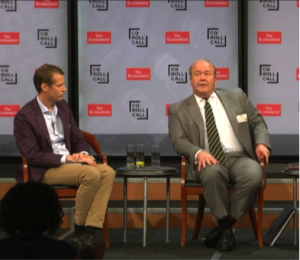
Roy Kamphausen, Senior Advisor for Political and Security Affairs at The National Bureau of Asian Research

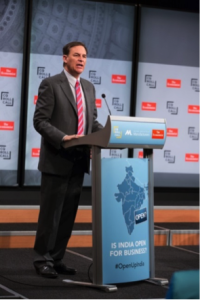
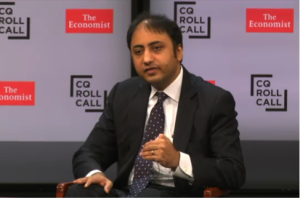
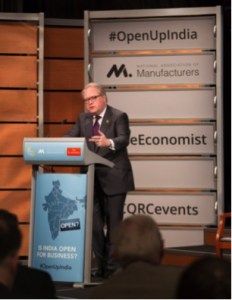
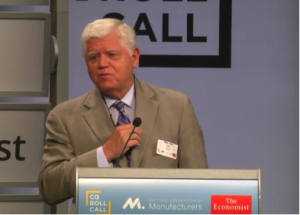


No comments